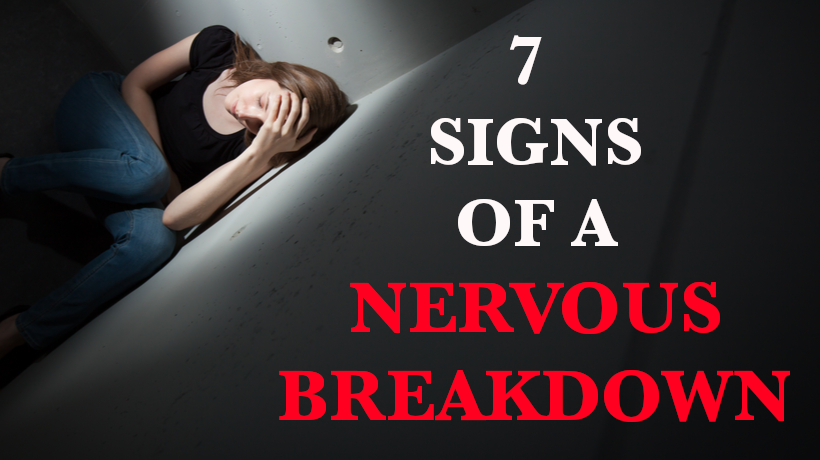Stress is a feeling that we all have experienced at one time or another. It’s when stress reaches an overwhelming level that it can lead to anxiety, depression, or nervous breakdowns. This type of stress can be brought on by work, relationships, finances, and even uncertainties in life. While a nervous breakdown isn’t a medical term, it isn’t a healthy response to stress and may lead to other issues such as depression or anxiety. Gordon Parker, Ph.D., finds that the phrase broadly correlates to what clinicians would call “adjustment disorder,” a broad diagnosis applied to patients who suffer emotional or behavioral symptoms in the wake of identifiable stress.”
Here are seven signs of having a nervous breakdown:
Sudden change in one’s daily routine.
Daniel K. Hall-Flavin, M.D says, “He or she may have trouble following healthy patterns of eating, sleeping, and hygiene. A number of other unusual or dysfunctional behaviors may be considered signs and symptoms of a nervous breakdown.” If you notice a frequent desire to call into work sick, avoid social engagements, and miss appointments it may be a cause for concern.
Stored tension in the body.
Be aware if you are having frequent headaches or tightness in the jaw, neck, or shoulders. Tension and tightness in muscles can lead to shallow breath and more stress due to the body being in pain.
Increased heart rate.
A nervous breakdown can feel like an anxiety attack. Overwhelming stress can lead to a racing mind, heart palpitations, and in some cases an irregular heartbeat. It can be scary because these symptoms are often mistaken as a heart attack. These symptoms can trigger an anxiety attack or a “nervous breakdown.”
Unexpected mood shifts.
According to Flavin, unexplained outbursts of anger, irritability, crying or other emotional responses that are out of proportion to the current situations are signs that a nervous breakdown is occurring.
Loss of focus.
You may be struggling to be present because your mind is overwhelmed with the past, what is going on in the present, or what may happen in the future. This can cause a lack of focus on routine tasks.
Rapid weight loss or weight gain.
Flavin says a nervous breakdown can also affect your eating habits. You may start eating too little or indulge in overeating leading to sudden changes in weight. “A lot of people indulge in emotional eating when they feel overwhelmed and gain a lot of weight. On the contrary, some people may lose their appetite due to stress and anxiety and lose a lot of weight.”
Feeling hopeless.
A nervous breakdown can be accompanied by depressive symptoms. Be aware of feelings such as helplessness, sadness, and loss of interest in activities.
If you are experiencing any of these symptoms or feel like nervous breakdowns are taking over your life, know that it can be helpful to speak to a medical professional, psychologist, or loved ones. You can also seek professional help from a counselor or psychiatrist. There are lots of treatments like Talk therapy and Cognitive Behavior Therapy that can go a long way.
Sources:



